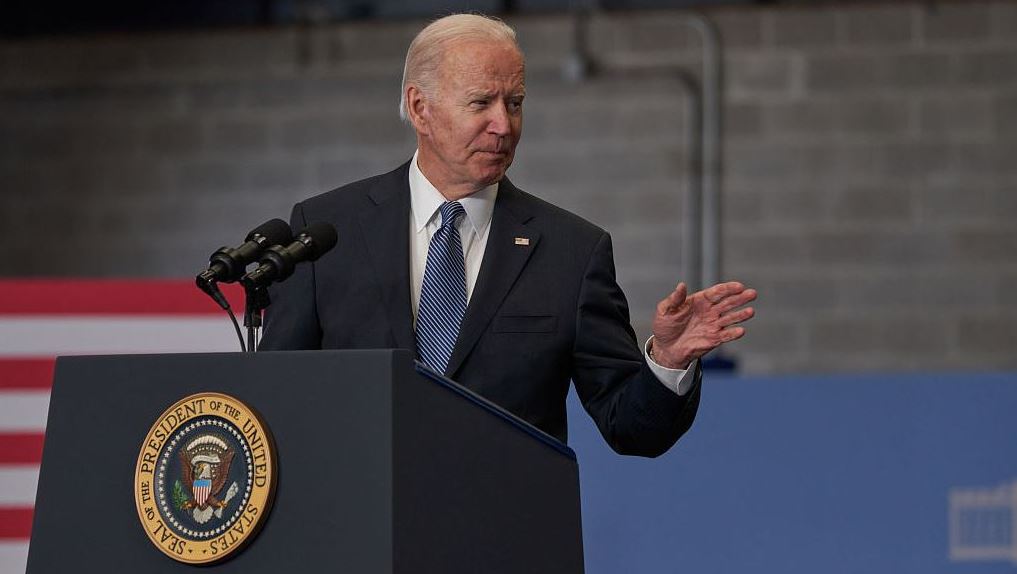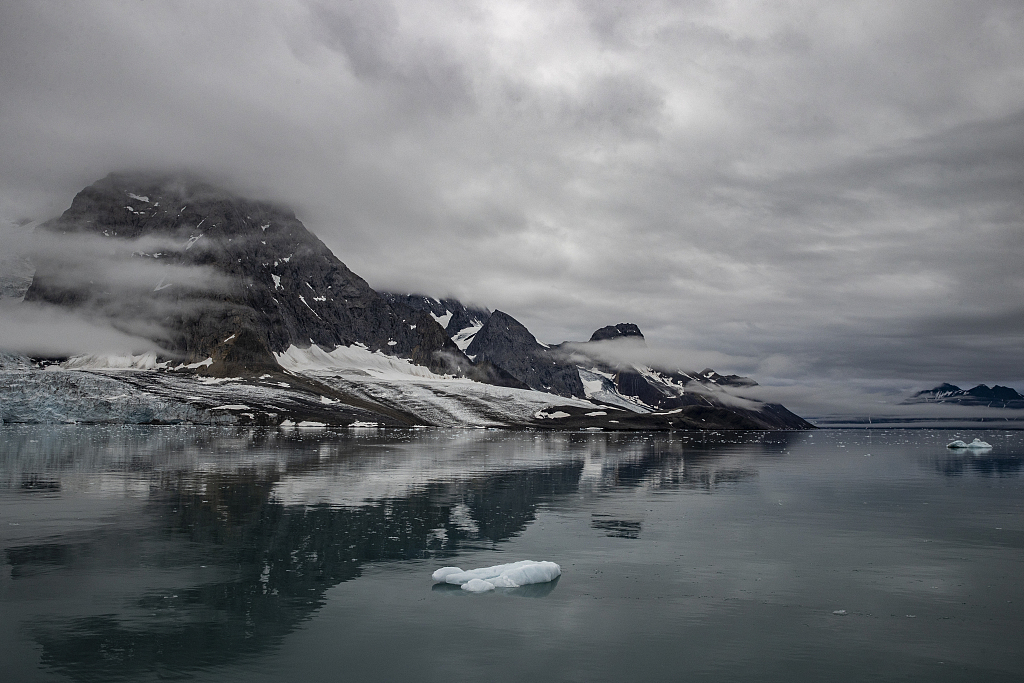
U.S. President Joe Biden. /AP
U.S. President Joe Biden. /AP
Editor's note: Andrew Korybko is a Moscow-based American political analyst. The article reflects the author's opinions and not necessarily those of CGTN.
The U.S. published its latest "National Strategy For The Arctic Region" on October 7, which in practice amounts to a declaration of hybrid war against Russia and arguably also China in this geostrategically and economically significant region. Russia is misportrayed as a threat in this part of the world while China's expanding economic and scientific activity there, which is purely peaceful without any military intentions, is falsely framed as problematic.
In response to these artificially manufactured perceptions, the U.S. intends to advance a four-prong policy towards the Arctic Region. This includes military, environmental, economic, and governance and institutional dimensions, all of which are meant to combine in such a way as to enable that declining unipolar hegemon to reassert its authority there. The military and political drivers behind this strategy will needlessly spike the risk of conflict among major countries and create closed blocs.
This is against America's own objective national interests, however, since such are best served by maintaining peace and stability along this emerging geo-economic corridor that many have taken to describing as the Northern Sea Route (NSR) in recent years. The gradual melting of arctic ice will unlock previously untapped potential for strengthening trade ties between both sides of the Eurasian supercontinent, which will accelerate the global economic recovery that's in everyone's interests.
That last-mentioned process has thus far been stalled by the pandemic's lingering consequences, not to mention the global systemic disruption brought about by the latest phase of the Ukrainian conflict that broke out in the end of February. The previously globalized economy in which all responsible players have a stake is dangerously at risk of further fracturing, which could ultimately result in its bifurcation or even shattering into several increasingly disconnected spheres in the worst-case scenario.
The U.S.-led Western unilateral sanctions against Russia have rendered the previously promising Eurasian Land Bridge through that major country economically and politically unviable, thus abruptly complicating the supercontinent's inevitable integration through trade. The China-Central Asia-West Asia Economic Corridor could replace the Eurasian Land Bridge's role but not anytime soon.

A view of fiords near Svalbard Islands, in the Arctic Ocean in Norway, July 19, 2022. /CFP
A view of fiords near Svalbard Islands, in the Arctic Ocean in Norway, July 19, 2022. /CFP
For this reason, maritime trade between the Eastern and Western halves of Eurasia (which are its most economically productive regions) will remain integral for the indefinite future until the aforementioned complementary corridors are completely constructed. Regrettably, however, the U.S. is seeking to destabilize the South China Sea through its falsely described freedom of navigation operation and its meddling in China's Taiwan region.
Driven by its self-interested hegemonic interests to create challenges to China's international trade, which parallels its continued trade war against the country, Washington is counterproductively harming its European allies as well whose economies remain closely connected to China's. Under such circumstances, the NSR begins to take on outsized significance in terms of maintaining mutually beneficial trade ties between these two halves of Eurasia, hence the worries over the U.S.'s new strategy.
By militarizing the Arctic region and trying to expand its closed bloc system into that part of the world, the U.S. is risking a further worsening of the global economic crisis that was caused by a combination of unintended consequences connected to the pandemic and the West's unilateral anti-Russian sanctions. America's strategists either don't realize how much the worst-case scenarios harm their own interests and those of their allies, or they don't care because they're so crazed about restoring unipolarity.
They must urgently be reminded that the global systemic transition to multipolarity is irreversible even if it still takes some time to fully unfold. The course of history cannot be changed, and aggressively going against complex trends will only lead to making the end result more painful for everyone. Instead of militarizing the Arctic and expanding closed blocs to that region, the U.S. must behave responsibly by de-escalating tensions.
This can only be done by entering into dialogue with Russia, China, and other responsible stakeholders. Washington doesn't want to talk to Moscow, but it has to if there's to be any hope for preventing a conflict by miscalculation at the top of the world. As for Beijing, maintaining trade ties between it and Brussels via the NSR is integral for ensuring Eurasia's sustainable economic recovery, without which Washington's allies will become weaker and risk further fracturing their already flimsy unity.
Western political circles have yet to realize it, but the fact is that the Arctic is among the most important places in the world right now for ensuring everyone's interests without exception. Furthermore, there's no doubt that regional stability there is impossible without the West pragmatically cooperating with Russia and China as equals. For these reasons, it's hoped that win-win common sense will ultimately prevail over zero-sum illogicalness.
(If you want to contribute and have specific expertise, please contact us at opinions@cgtn.com. Follow @thouse_opinions on Twitter to discover the latest commentaries in the CGTN Opinion Section.)